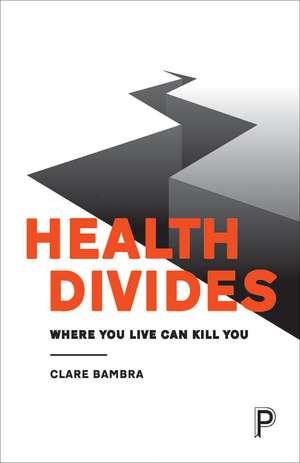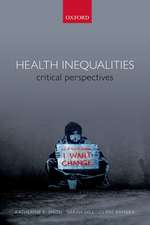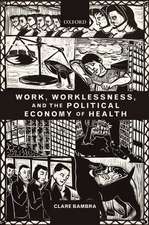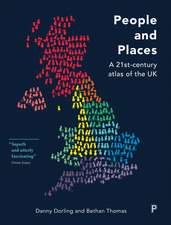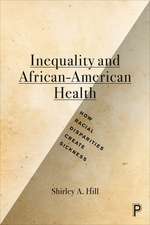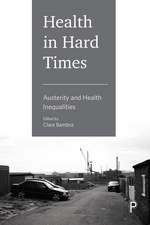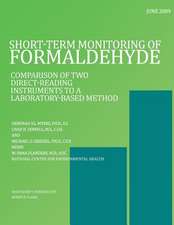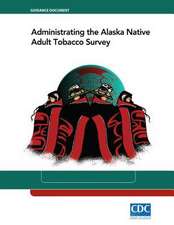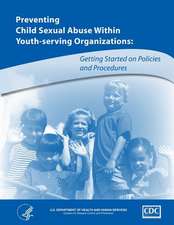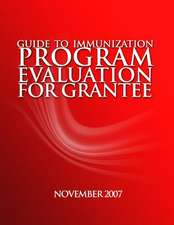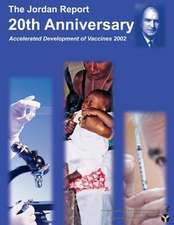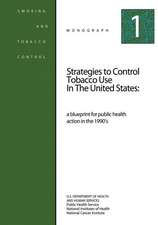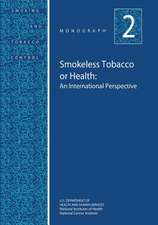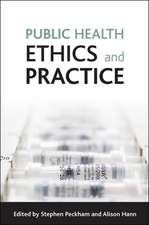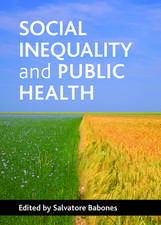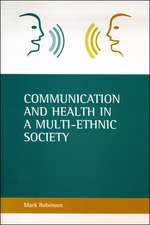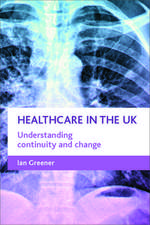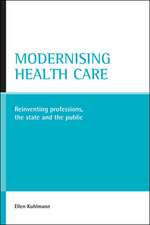Health Divides: Where You Live Can Kill You
Autor Clare Bambra Cuvânt înainte de Danny Dorlingen Limba Engleză Paperback – 29 aug 2016
Americans live three years less than their counterparts in France or Sweden. Scottish men survive two years less than English men. Across Europe, women in the poorest communities live up to ten years less than those in the richest. Revealing gaps in life expectancy of up to twenty-five years between places just a few miles apart, this important book demonstrates that where you live can kill you.
With a foreword by Danny Dorling, this book from Clare Bambra, a leading expert in public health geography, draws on case studies from across the globe to examine the social, environmental, economic, and political causes of these health inequalities, how they have evolved over time, and what they are like today. Bambra concludes by considering how health divides might develop in the future and what should be done, so that where you live is not a matter of life and death.
With a foreword by Danny Dorling, this book from Clare Bambra, a leading expert in public health geography, draws on case studies from across the globe to examine the social, environmental, economic, and political causes of these health inequalities, how they have evolved over time, and what they are like today. Bambra concludes by considering how health divides might develop in the future and what should be done, so that where you live is not a matter of life and death.
Preț: 127.11 lei
Preț vechi: 133.80 lei
-5% Nou
Puncte Express: 191
Preț estimativ în valută:
24.33€ • 26.41$ • 20.43£
24.33€ • 26.41$ • 20.43£
Carte disponibilă
Livrare economică 01-15 aprilie
Preluare comenzi: 021 569.72.76
Specificații
ISBN-13: 9781447330356
ISBN-10: 1447330358
Pagini: 256
Dimensiuni: 140 x 216 x 30 mm
Greutate: 0.34 kg
Editura: Bristol University Press
Colecția Policy Press
ISBN-10: 1447330358
Pagini: 256
Dimensiuni: 140 x 216 x 30 mm
Greutate: 0.34 kg
Editura: Bristol University Press
Colecția Policy Press
Notă biografică
Clare Bambra is professor of public health in the Institute of Health and Society at Newcastle University, UK. Her research focuses on the political, social, economic, and environmental determinants of health inequalities, and the role of public policies in reducing them. She has published extensively in the field of health inequalities and contributed to numerous national and international policy reviews and inquiries. She can be followed on Twitter @ProfBambra.
Cuprins
Foreword ~ Danny Dorling;
Health Divides;
From King Cholera to the C Word;
In Sickness and In Health;
Placing Life and Death;
It’s the (Political) Economy;
Too Little, Too Late;
Past, Present, Future.
Health Divides;
From King Cholera to the C Word;
In Sickness and In Health;
Placing Life and Death;
It’s the (Political) Economy;
Too Little, Too Late;
Past, Present, Future.
Recenzii
“Health care workers, public health officials, and governments have long sought ways to improve the health of those in their charge. But identifying those factors most relevant to local and regional differences in health has been a formidable task. . . . Bambra uses systematic investigation to uncover the underlying factors responsible for health disparities. Her journey begins with the observation that health disparities vary in clear geographic demarcations that she terms ‘health divides.’ . . . Despite the highest expenditures on health in the world, the United States falls woefully short on a range of health outcomes. Using the obesity epidemic as an example, Bambra shows that this particular health disadvantage, seen throughout the country today, was not always so uniform. . . . Bambra's well-referenced book and case study approach make it a welcome supplemental text for courses in health policy and introductory epidemiology, as well as a valuable primer for policy makers. But her systematic analysis and clear exposition will also allow the general reader to appreciate the value of health disparities research.”
"Inequality . . . is nothing to do with the poor being a hopeless underclass, destined for extinction in a Darwinian world where only the fittest survive. As Bambra . . . spells out, it has everything to do with factors such as poor housing, poor nutrition, and lack of educational and employment opportunities."
“Bambra provides a good, easy-to-understand introduction to the major causes of health inequality in rich countries.”
"A careful analysis of persistent geographical health inequalities. . . . In reading Health Divides, I wondered what the future might hold. With the United Kingdom’s Conservative Party struggling to deal with the economic turmoil unleashed by Brexit (the country’s vote to leave the European Union) and US president-elect Donald Trump’s stated commitment to substantial tax cuts for the rich, the short answer is more of the same. . . . Bambra concludes that the narrowing of geographical health divides ‘requires the right political choices to be made, not just by politicians, but also by electorates: we can vote for and support political parties and movements that offer programs that will reduce health divides, or not.’ In other words, it is less where you live, but how you vote, that can kill you. Those of us in the United Kingdom and the United States have recently voted and will reap what we have sown."
“Bambra also ends the book with a rallying note to her readers: we need income redistribution, devolution of power and a resourcing of the regions to make economic growth work for all.”
“Bambra, a global leader in population health research who has been at the avant-garde in understanding how politics matters for life and death, has contributed a major, readable new statement that captures crucial insights from a new wave of political epidemiology. Health Divides will change the way you think about health and illness.”
“In Health Divides, Bambra provides a broad-ranging account of how place is implicated in large and growing health inequalities in some of the most affluent societies of the world. She squarely implicates policies of the neoliberal era in a compelling argument that, if heeded, could make for a healthier society.”
“This numerical journey through the geographies of health and disease drives home one vital message: inequalities of place create inequalities in health. As the book eloquently observes, the political economy and geography of inequality largely determines how well, and how long, one is likely to live.”
“Drawing on current and historical data from the United Kingdom and the United States, Bambra brilliantly demonstrates how increasing geographical and social health inequities stem from policy decisions and how different political choices could reduce them.”
“Bambra’s razor sharp, timely, and comprehensive analysis should be read by anyone concerned about inequality.”
“This clearly written book, full of striking examples from around the world, shows that geography is as relevant for population health as ever.”
“An excellent overview of the importance of geography for public health. A strong contribution to the health geography and public health literatures which highlights the importance of politics and policies for the unequal spatial distribution of health. I recommend it.”
“A highly accessible text that provides a forensic investigation into how and why geography matters for health and inequalities. . . . Profoundly important and complemented with urgent and thought-provoking guidelines for what needs to be done to address this seemingly intractable societal problem.”
